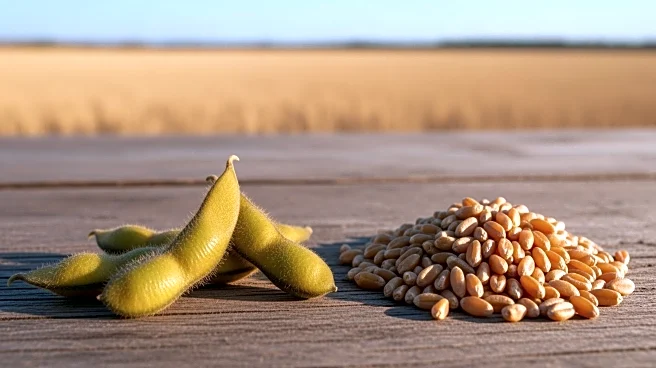What's Happening?
A woman, who had been friends with another for 50 years, is experiencing emotional distress after being excluded by the deceased friend's family. Despite sending a fruit basket, sympathy card, and attempting
to contact the family, she received no response. She attended the wake after finding out the details independently, only to discover that she was not included in the photo displays of her friend's life. The woman had maintained a friendship with the deceased throughout the years, especially during her final year of illness, and is now questioning her feelings of being ignored by the family.
Why It's Important?
This situation highlights the complexities of interpersonal relationships and the emotional impact of being excluded during significant life events. It underscores the importance of communication and acknowledgment in maintaining relationships, especially after the loss of a loved one. The emotional distress experienced by the woman reflects broader societal issues related to grief, recognition, and the role of long-term friendships in providing support during difficult times. It also raises questions about how families manage grief and the inclusion of non-family members in mourning processes.
What's Next?
The woman may need to find ways to cope with her feelings of exclusion and hurt. This could involve seeking support from other friends or professional counseling to process her emotions. The family might eventually reach out, but in the meantime, the woman must navigate her grief independently. This situation could lead to discussions about the importance of recognizing and including long-term friends in mourning rituals, potentially influencing how families approach such situations in the future.
Beyond the Headlines
The exclusion of the woman from the mourning process may reflect deeper societal issues regarding the recognition of non-familial relationships. It raises ethical questions about the acknowledgment of friendships in the context of family-centric mourning practices. This situation could prompt a reevaluation of how society values and integrates friendships into significant life events, potentially leading to cultural shifts in how grief and support networks are structured.










